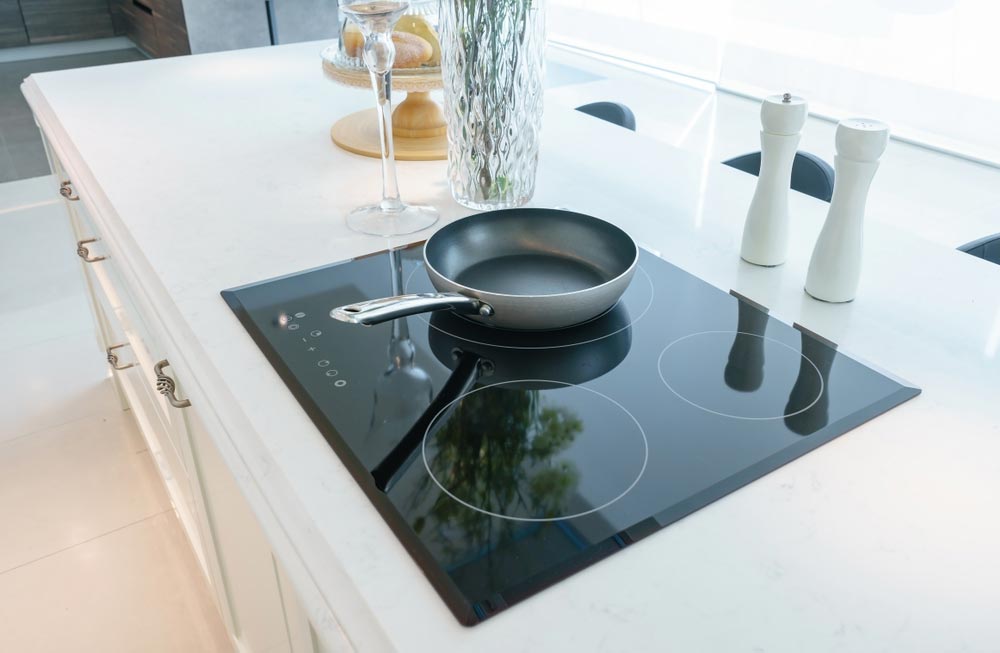When the cold months roll in, keeping your home warm and comfortable becomes a top priority. But with rising energy costs and multiple heating options on the market, it’s important to make sure you’re choosing the system that’s not only effective but also cost-efficient.
Gas and electricity are the two main contenders, but which is better for your lifestyle, budget, and the environment? Whether you’re choosing appliances, heating systems, or hot water setups, the decision between gas and electricity impacts your long-term costs, safety, and sustainability.
This guide will help you compare gas and electricity for common household uses, breaking down the pros, cons, and costs so you can make an informed choice.
What is a Gas Heater?
A gas heater is a heating appliance that uses natural gas or liquefied petroleum gas (LPG) as its energy source. It works by burning gas in a combustion chamber to produce heat, which is then distributed into a room or building. Gas heaters are often chosen for their quick heating ability and lower operating costs compared to some electric models.
What is an Electric Heater?
An electric heater is a device that converts electrical energy into heat using resistive heating elements. When electricity flows through the element, it heats up and radiates warmth into the surrounding area. Electric heaters are easy to install, portable, and suitable for small spaces, but they can be more expensive to run than gas heaters, especially in large areas.
Quick Comparison: Gas vs Electricity
| Feature | Gas | Electricity |
|---|---|---|
| Upfront Costs | Higher (appliance + gas fitting) | Lower appliance cost |
| Running Costs | Generally cheaper per MJ | Higher, depending on usage |
| Safety | Risk of leaks & carbon monoxide | Risk of electrocution or fire |
| Environmental Impact | Emits CO₂; non-renewable | Cleaner if powered by renewables |
| Best For | Cooking, heating, hot water | Lighting, air con, entertainment, solar |
Gas vs Electric for Cooking
Gas Cooking
- Instant temperature control
- Preferred by chefs for responsiveness
- Still works during a power outage
- Requires proper ventilation and gas line installation
✅ Best if you want speed and precision
Electric Cooking (incl. induction)
- Easier to clean
- Induction cooktops heat faster and safer than traditional electric
- Often more energy-efficient in newer models
- Doesn’t require gas line access
✅ Best if you value safety and efficiency
Gas vs Electric for Heating
Gas Heating
- Quick to heat large spaces
- Great for colder climates
- Typically lower running costs
- Wall furnaces and ducted gas are common
✅ Best for large homes
Electric Heating
- Safer and easier to install
- Better for small rooms or occasional use
- Can be powered by solar panels
- Includes portable heaters, reverse-cycle air con
✅ Best for short-term or solar homes
Gas vs Electric for Hot Water
Gas Hot Water Systems
- Continuous flow or storage systems
- Heats water quickly
- Works during blackouts (mains gas)
- Requires professional gas fitting
✅ Best for large households
Electric Hot Water Systems
- Easy to install
- Often cheaper upfront
- Can be expensive to run if not off-peak
- Solar-boosted electric is highly efficient
✅ Best for low-use or solar-equipped homes
Upfront & Ongoing Costs Explained
Initial Appliance Cost
- Gas appliances (heaters, ovens, hot water): higher upfront due to materials and installation
- Electric appliances: often cheaper but still require certified electrical installation
Running Costs
- Gas is typically more affordable per megajoule (MJ) than electricity per kilowatt-hour (kWh) in most parts of Queensland
- Costs depend on local tariffs and appliance efficiency
Example (QLD Rates 2025):
- Gas: ~3–5 cents/MJ
- Electricity: ~25–30 cents/kWh
A Clear Cost Comparison for Australian Homes in 2025
| Factor | Electricity | Gas |
|---|---|---|
| Unit Price | ~32.5¢ per kWh | ~4.6¢ per MJ (~16.5¢ per kWh equivalent) |
| Annual Bill (Average) | ~$1,830 | ~$1,270 |
| Heating Costs | $500–$900/year (heat pump) | $800–$1,200/year (ducted) |
| Efficiency | High (heat pumps 3–4× efficient) | Lower efficiency |
| Price Trend (2025) | Slight increases in some states | Rising mid-2025 |
Environmental Considerations in Australia
Gas
- Non-renewable fossil fuel
- Emits greenhouse gases during use
- Extraction (fracking) impacts environment
Electricity
- Can be renewable (solar, wind, hydro)
- Solar panels make electric appliances very eco-friendly
- Coal-generated electricity still common in some areas
✅ Want to reduce your carbon footprint? Choose electric + solar where possible.
Safety & Maintenance: What You Need to Know
| Aspect | Gas | Electricity |
|---|---|---|
| Main Risks | Leaks, carbon monoxide, combustion | Shock, fire, faulty wiring |
| Maintenance | Annual checks by licensed gasfitter | Safety inspections by licensed electrician |
| Prevention | CO detectors, leak tests, regular servicing | RCD safety switches, surge protection |
How to Choose What’s Right for You
When deciding between gas and electricity, consider:
- Your household size
- Whether you have solar panels
- Your budget for installation and ongoing costs
- Availability of gas in your suburb
- Your environmental goals
Still unsure? Talk to a qualified professional who can assess your home setup and recommend the best solution.
Need Help? Book a Licensed Professional
Whether you’re upgrading appliances, building a new home, or reducing energy costs, Oceanside Services is here to help. Our licensed electricians and gasfitters can guide you through installation, repairs, and efficiency upgrades.



 5 Star Service
5 Star Service 




